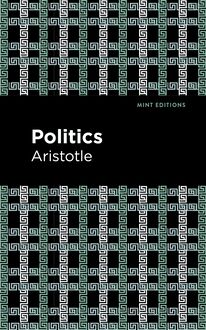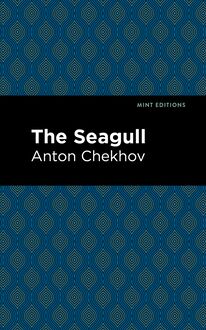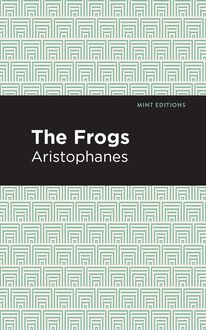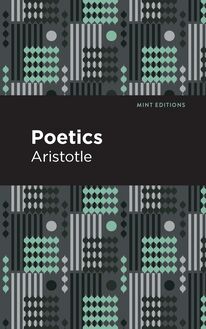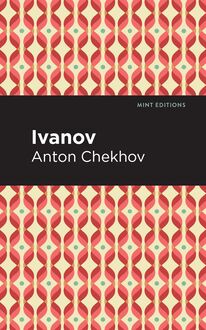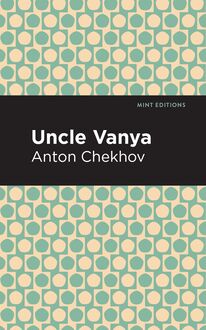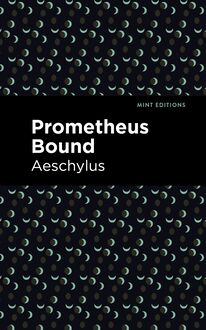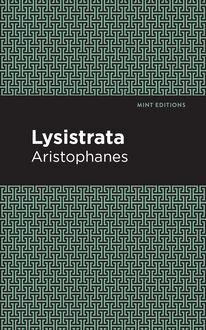-
 Univers
Univers
-
 Ebooks
Ebooks
-
 Livres audio
Livres audio
-
 Presse
Presse
-
 Podcasts
Podcasts
-
 BD
BD
-
 Documents
Documents
-
- Cours
- Révisions
- Ressources pédagogiques
- Sciences de l’éducation
- Manuels scolaires
- Langues
- Travaux de classe
- Annales de BEP
- Etudes supérieures
- Maternelle et primaire
- Fiches de lecture
- Orientation scolaire
- Méthodologie
- Corrigés de devoir
- Annales d’examens et concours
- Annales du bac
- Annales du brevet
- Rapports de stage
La lecture à portée de main
Vous pourrez modifier la taille du texte de cet ouvrage
Découvre YouScribe en t'inscrivant gratuitement
Je m'inscrisDécouvre YouScribe en t'inscrivant gratuitement
Je m'inscrisEn savoir plus
Vous pourrez modifier la taille du texte de cet ouvrage
En savoir plus

Description
Uncle Vanya (1898) is a four-act play by Russian short story writer and playwright Anton Chekhov. It was first performed at the Moscow Art Theatre in 1899, directed by acclaimed actor Konstantin Stanislavski—who also played the role of Astrov. Reviews were lukewarm at first, but as the play continued to run, Uncle Vanya gained both popularity and critical prowess, and has since become one of the most influential dramas ever produced.
When retired Professor Aleksandr Serebryakov and his young second wife Yelena arrive at their country estate, they disrupt the mundanity and relative boredom of provincial life for its inhabitants. While the elderly Serebryakov enjoys life in the city, Sonya, his daughter, and Vanya, his first wife’s brother, remain at the estate to manage its daily upkeep. Vanya, whose only companion is Mikhail Astrov, a doctor dissatisfied with his life and role in the rural community, regrets his failure to become a man of letters, and blames Serebryakov for saddling him with responsibility for the estate. He also loves the beautiful Yelena and wishes he had realized it before she married his brother-in-law. Meanwhile, Sonya secretly loves Astrov, but fears he thinks of her as only a friend. As Serebryakov’s decision to sell the estate in order to increase his income is revealed, Vanya—incensed by years of disappointment and disrespect, as well as his by own mother’s idolization of the Professor—reaches his breaking point, bringing the play to its startling, powerful conclusion. Uncle Vanya is a masterful drama that illuminates the intersecting obligations of family while dissecting the bitterness and ambition which so often define the relationships of men.
With a beautifully designed cover and professionally typeset manuscript, this edition of Anton Chekhov’s Uncle Vanya is a classic of Russian literature reimagined for modern readers.
Sujets
Informations
| Publié par | Mint Editions |
| Date de parution | 08 décembre 2020 |
| Nombre de lectures | 0 |
| EAN13 | 9781513274546 |
| Langue | English |
Informations légales : prix de location à la page 0,0300€. Cette information est donnée uniquement à titre indicatif conformément à la législation en vigueur.
Extrait
Uncle Vanya
Anton Chekhov
Uncle Vanya was first published in 1898.
This edition published by Mint Editions 2020.
ISBN 9781513269122 | E-ISBN 9781513274546
Published by Mint Editions®
minteditionbooks.com
Publishing Director: Jennifer Newens
Design & Production: Rachel Lopez Metzger
Typesetting: Westchester Publishing Services
C ONTENTS Act I Act II Act III Act IV
C HARACTERS
A LEXANDER S EREBRAKOFF , a retired professor
H ELENA , his wife, twenty-seven years old
S ONIA , his daughter by a former marriage
MME . V OITSKAYA , widow of a privy councilor, and mother of Serebrakoff’s first wife
I VAN ( V ANYA ) V OITSKI , her son
M ICHAEL A STROFF , a doctor
I LIA ( W AFFLES ) T ELEGIN , an impoverished landowner
M ARINA , an old nurse
A W ORKMAN
The scene is laid on S EREBRAKOFF’S country place
Act I
A country house on a terrace. In front of it a garden. In an avenue of trees, under an old poplar, stands a table set for tea, with a samovar, etc. Some benches and chairs stand near the table. On one of them is lying a guitar. A hammock is swung near the table. It is three o’clock in the afternoon of a cloudy day.
M ARINA , a quiet, grey-haired, little old woman, is sitting at the table knitting a stocking.
A STROFF is walking up and down near her.
M ARINA : [ Pouring some tea into a glass ] Take a little tea, my son.
A STROFF : [ Takes the glass from her unwillingly ] Somehow, I don’t seem to want any.
M ARINA : Then will you have a little vodka instead?
A STROFF : No, I don’t drink vodka every day, and besides, it is too hot now. [ A pause ] Tell me, nurse, how long have we known each other?
M ARINA : [ Thoughtfully ] Let me see, how long is it? Lord—help me to remember. You first came here, into our parts—let me think—when was it? Sonia’s mother was still alive—it was two winters before she died; that was eleven years ago—[ thoughtfully ] perhaps more.
A STROFF : Have I changed much since then?
M ARINA : Oh, yes. You were handsome and young then, and now you are an old man and not handsome any more. You drink, too.
A STROFF : Yes, ten years have made me another man. And why? Because I am overworked. Nurse, I am on my feet from dawn till dusk. I know no rest; at night I tremble under my blankets for fear of being dragged out to visit some one who is sick; I have toiled without repose or a day’s freedom since I have known you; could I help growing old? And then, existence is tedious, anyway; it is a senseless, dirty business, this life, and goes heavily. Every one about here is silly, and after living with them for two or three years one grows silly oneself. It is inevitable. [ Twisting his moustache ] See what a long moustache I have grown. A foolish, long moustache. Yes, I am as silly as the rest, nurse, but not as stupid; no, I have not grown stupid. Thank God, my brain is not addled yet, though my feelings have grown numb. I ask nothing, I need nothing, I love no one, unless it is yourself alone. [ He kisses her head ] I had a nurse just like you when I was a child.
M ARINA : Don’t you want a bite of something to eat?
A STROFF : No. During the third week of Lent I went to the epidemic at Malitskoi. It was eruptive typhoid. The peasants were all lying side by side in their huts, and the calves and pigs were running about the floor among the sick. Such dirt there was, and smoke! Unspeakable! I slaved among those people all day, not a crumb passed my lips, but when I got home there was still no rest for me; a switchman was carried in from the railroad; I laid him on the operating table and he went and died in my arms under chloroform, and then my feelings that should have been deadened awoke again, my conscience tortured me as if I had killed the man. I sat down and closed my eyes—like this—and thought: will our descendants two hundred years from now, for whom we are breaking the road, remember to give us a kind word? No, nurse, they will forget.
M ARINA : Man is forgetful, but God remembers.
A STROFF : Thank you for that. You have spoken the truth.
Enter V OITSKI from the house. He has been asleep after dinner and looks rather dishevelled. He sits down on the bench and straightens his collar.
V OITSKI : H’m. Yes. [ A pause ] Yes.
A STROFF : Have you been asleep?
V OITSKI : Yes, very much so. [ He yawns ] Ever since the Professor and his wife have come, our daily life seems to have jumped the track. I sleep at the wrong time, drink wine, and eat all sorts of messes for luncheon and dinner. It isn’t wholesome. Sonia and I used to work together and never had an idle moment, but now Sonia works alone and I only eat and drink and sleep. Something is wrong.
M ARINA : [ Shaking her head ] Such a confusion in the house! The Professor gets up at twelve, the samovar is kept boiling all the morning, and everything has to wait for him. Before they came we used to have dinner at one o’clock, like everybody else, but now we have it at seven. The Professor sits up all night writing and reading, and suddenly, at two o’clock, there goes the bell! Heavens, what is that? The Professor wants some tea! Wake the servants, light the samovar! Lord, what disorder!
A STROFF : Will they be here long?
V OITSKI : A hundred years! The Professor has decided to make his home here.
M ARINA : Look at this now! The samovar has been on the table for two hours, and they are all out walking!
V OITSKI : All right, don’t get excited; here they come.
Voices are heard approaching. S EREBRAKOFF , H ELENA , S ONIA , and T ELEGIN come in from the depths of the garden, returning from their walk.
S EREBRAKOFF : Superb! Superb! What beautiful views!
T ELEGIN : They are wonderful, your Excellency.
S ONIA : To-morrow we shall go into the woods, shall we, papa?
V OITSKI : Ladies and gentlemen, tea is ready.
S EREBRAKOFF : Won’t you please be good enough to send my tea into the library? I still have some work to finish.
S ONIA : I am sure you will love the woods.
H ELENA , S EREBRAKOFF , and S ONIA go into the house. T ELEGIN sits down at the table beside M ARINA .
V OITSKI : There goes our learned scholar on a hot, sultry day like this, in his overcoat and goloshes and carrying an umbrella!
A STROFF : He is trying to take good care of his health.
V OITSKI : How lovely she is! How lovely! I have never in my life seen a more beautiful woman.
T ELEGIN : Do you know, Marina, that as I walk in the fields or in the shady garden, as I look at this table here, my heart swells with unbounded happiness. The weather is enchanting, the birds are singing, we are all living in peace and contentment—what more could the soul desire? [ Takes a glass of tea ]
V OITSKI : [ Dreaming ] Such eyes—a glorious woman!
A STROFF : Come, Ivan, tell us something.
V OITSKI : [ Indolently ] What shall I tell you?
A STROFF : Haven’t you any news for us?
V OITSKI : No, it is all stale. I am just the same as usual, or perhaps worse, because I have become lazy. I don’t do anything now but croak like an old raven. My mother, the old magpie, is still chattering about the emancipation of woman, with one eye on her grave and the other on her learned books, in which she is always looking for the dawn of a new life.
A STROFF : And the Professor?
V OITSKI : The Professor sits in his library from morning till night, as usual—
“Straining the mind, wrinkling the brow,
We write, write, write,
Without respite
Or hope of praise in the future or now.”
Poor paper! He ought to write his autobiography; he would make a really splendid subject for a book! Imagine it, the life of a retired professor, as stale as a piece of hardtack, tortured by gout, headaches, and rheumatism, his liver bursting with jealousy and envy, living on the estate of his first wife, although he hates it, because he can’t afford to live in town. He is everlastingly whining about his hard lot, though, as a matter of fact, he is extraordinarily lucky. He is the son of a common deacon and has attained the professor’s chair, become the son-in-law of a senator, is called “your Excellency,” and so on. But I’ll tell you something; the man has been writing on art for twenty-five years, and he doesn’t know the very first thing about it. For twenty-five years he has been chewing on other men’s thoughts about realism, naturalism, and all such foolishness; for twenty-five years he has been reading and writing things that clever men have long known and stupid ones are not interested in; for twenty-five years he has been making his imaginary mountains out of molehills. And just think of the man’s self-conceit and presumption all this time! For twenty-five years he has been masquerading in false clothes and has now retired absolutely unknown to any living soul; and yet see him! stalking across the earth like a demi-god!
A STROFF : I believe you envy him.
V OITSKI : Yes, I do. Look at the success he has had with women! Don Juan himself was not more favoured. His first wife, who was my sister, was a beautiful, gentle being, as pure as the blue heaven there above us, noble, great-hearted, with more admirers than he has pupils, and she loved him as only beings of angelic purity can love those who are as pure and beautiful as themselves. His mother-in-law, my mother, adores him to this day, and he still inspires a sort of worshipful awe in her. His second wife is, as you see, a brilliant beauty; she married him in his old age and has surrendered all the glory of her beauty and freedom to him. Why? What for?
A STROFF : Is she faithful to him?
V OITSKI : Yes, unfortunately she is.
A STROFF : Why unfortunately?
V OITSKI : Because such fidelity is false and unnatural, root and branch. It sounds well, but there is no logic in it. It is thought immoral for a woman to deceive an old husband whom she hates, but quite moral for her to strangle her poor youth in her breast and banish every vital desire from her heart.
-
 Univers
Univers
-
 Ebooks
Ebooks
-
 Livres audio
Livres audio
-
 Presse
Presse
-
 Podcasts
Podcasts
-
 BD
BD
-
 Documents
Documents
-
Jeunesse
-
Littérature
-
Ressources professionnelles
-
Santé et bien-être
-
Savoirs
-
Education
-
Loisirs et hobbies
-
Art, musique et cinéma
-
Actualité et débat de société
-
Jeunesse
-
Littérature
-
Ressources professionnelles
-
Santé et bien-être
-
Savoirs
-
Education
-
Loisirs et hobbies
-
Art, musique et cinéma
-
Actualité et débat de société
-
Actualités
-
Lifestyle
-
Presse jeunesse
-
Presse professionnelle
-
Pratique
-
Presse sportive
-
Presse internationale
-
Culture & Médias
-
Action et Aventures
-
Science-fiction et Fantasy
-
Société
-
Jeunesse
-
Littérature
-
Ressources professionnelles
-
Santé et bien-être
-
Savoirs
-
Education
-
Loisirs et hobbies
-
Art, musique et cinéma
-
Actualité et débat de société
- Cours
- Révisions
- Ressources pédagogiques
- Sciences de l’éducation
- Manuels scolaires
- Langues
- Travaux de classe
- Annales de BEP
- Etudes supérieures
- Maternelle et primaire
- Fiches de lecture
- Orientation scolaire
- Méthodologie
- Corrigés de devoir
- Annales d’examens et concours
- Annales du bac
- Annales du brevet
- Rapports de stage


